Table of Contents
Directions (1-4): Given below the table shows, total number of SBI branches in six cities, total number of accounts in these branches and ratio between saving and current accounts in each branch. Some data are missing, which have to calculate according to given data in questions. Read table carefully and answer the questions given below:
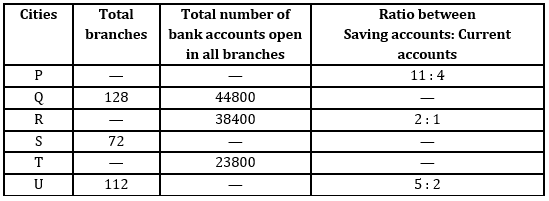
(Note: (1) Number of accounts opened in each branch are equal in each city
(2) All branches opened only two types of accounts saving and Current.
Q1. If 5/18th of total current accounts opened in city P are 10000 and average number of accounts opened in each branch is 900 then total branches in city P are what percent more or less than total branches in city R. Given that average number accounts opened in each branches in city R is 400 ?
(a) 48.25%
(b) 66.25%
(c) 46.25%
(d) 56.25 %
(e) 36.25%
Q2. 13/25th of total current accounts opened in city U are used for daily transaction and remaining used occasionally. If difference between current accounts used for daily transaction and current account used occasionally is 320 then ratio between average number of accounts opened in each branches in city U to number of branches in city R. (Given that average number of account opened in each branches of city R is 400)
(a) 48 : 125
(b) 127 : 48
(c) 125 : 48
(d) 121 : 48
(e) None of these
Q3. If in city T all branches charged Rs.12.5 and Rs.7.5 for opening one saving account and one current account respectively and total amount generated in opening account from all branches in city T is Rs.262500 then find difference between total number of currents accounts and saving accounts opened in city T ?
(a) 8800
(b) 9800
(c) 7800
(d) 6800
(e) 5800
Q4. In city Q ratio between total opened saving account to total opened current accounts is 5 : 2 and in city S average number of accounts opened in each branches is 550. Find average of total saving accounts opened in city Q and S, if in city S ratio between total saving accounts to current accounts in each branches is 7 : 4. ?
(a) 28600
(b) 26800
(c) 28400
(d) 28200
(e) 24800
Directions (5-7): Given below is the table that shows the investment of five different companies, time for which Investment made and share of profit out of the total profits. Some values are missing, which you have to calculate according to given information in question. Read the data carefully and answer the questions:

Q5. Airtel and Maruti together invested 315% of, what Tata invested. If ratio between invested amount of Airtel to amount invested by Maruti is 5 : 4 and they gets total 32% more profit than profit share of Tata. Then find profit amount of Airtel and Maruti respectively?
(a) 4500 cr, 5400 cr
(b) 4000 cr, 5400 cr
(c) 3500 cr, 4500 cr
(d) 3000 cr, 4500 cr
(e) 4800 cr & 5600 cr
Q6. Profit share of Tata and Wipro contributes 40% of total profit share of all the five companies. Profit share of Mahindra and Maruti is in the ratio 1 : 3. Find the total amount invested by Maruti and TATA together if amount invested by Airtel and Maruti is same while Mahindra invested for 10 months.(in cr)
(a) 52,500
(b) 57,500
(c) 38,750
(d) 33,750
(e) 75,000
Q7. If Maruti invested 20% more than that of Tata and gets 80% profit share of Wipro then find the difference between time period for which Maruti and Tata invested their amount?
(a) 2 months
(b) 1 ½ months
(c) 3 months
(d) 4 months
(e) 2½ months
Directions (8-11): Given below is the pie chart which shows the percentage distribution of books of publisher ‘X’ sold by 7 different books store in year 2016. Table shows the ratio of books sold of publisher X to publisher Y in these seven book stores.
Some values are missing in the table. You have to calculate these values if required to answer the questions.
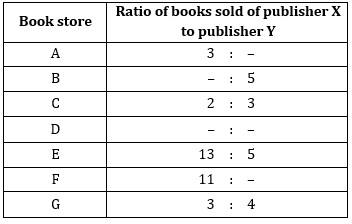
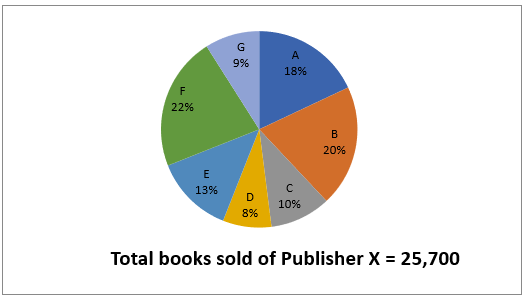
Q8. What is the total number of books sold by store A and B together if books sold by store A for publisher Y is 33⅓% more than that of publisher X and Books sold by store B for publisher X is 20% less than that of publisher Y.
(a) 22359
(b) 21257
(c) 20256
(d) 23244
(e) 22556
Q9. What is the total number of books sold by store D if books sold of publisher Y in store D is 25% more than that of books sold by store D of publisher X
(a) 2520
(b) 4020
(c) 4626
(d) 4422
(e) 4528
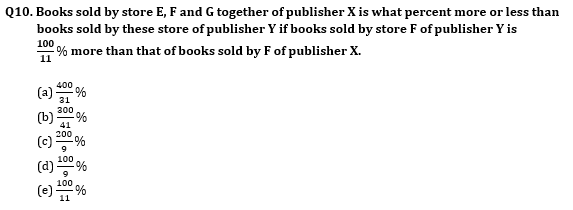
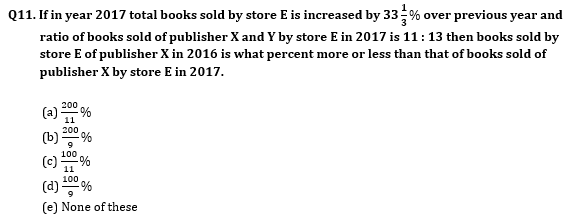
Directions (12-15): Pie graph given below shows total number of students appeared in five different exams, Table given below shows, percentage of students passed in exam out of total students appeared, and percentage of students who got first division out of total passed students in respective exam. Read given data carefully and answer the question.
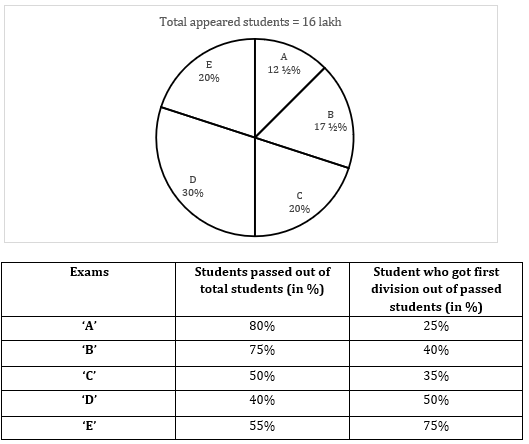
Q12. Total students who passed with first division in ‘D’ and ‘E’ together is what percent more than total number of students who passed with first division in ‘A’ and ‘C’ together?
(a) 127.5%
(b) 137.5%
(c) 237.5%
(d) 217.5%
(e) 147.5%
Q13. Number of students failed in exam ‘D’ is how much more than number of students failed in exam ‘B’?
(a) 2,28,000
(b) 2,38,000
(c) 2,48,000
(d) 2,58,000
(e) 2,18,000
Q14. Number of students who got second division in exam ‘C’ is 70% less than number of students who got third division in same exam. Find total number of students who got second division in exam ‘C’ if there?
(a) 32,000
(b) 56,000
(c) 80,000
(d) 24,000
(e) 28,000
Q15. Find the ratio between total number of students failed in exam ‘A’ and ‘C’ together to total number of students passed in exam ‘E’?
(a) 25 : 21
(b) 5 : 4
(c) 25 : 18
(d) 25 : 22
(e) 25 : 24
Practice More Questions of Quantitative Aptitude for Competitive Exams:
Solutions
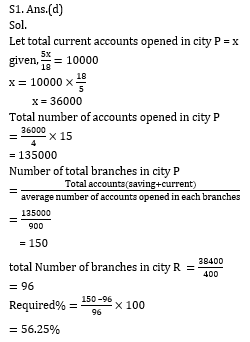
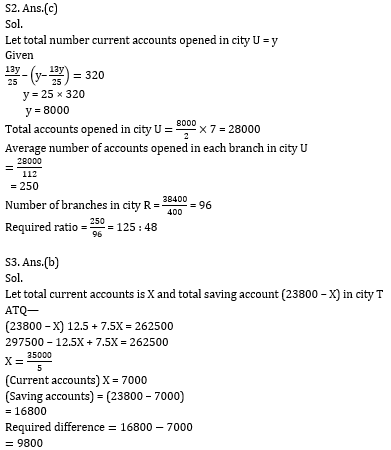
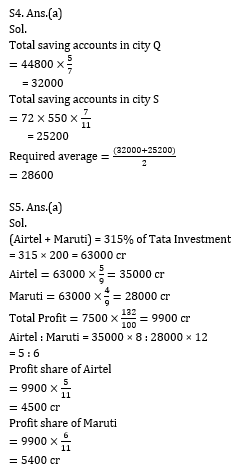
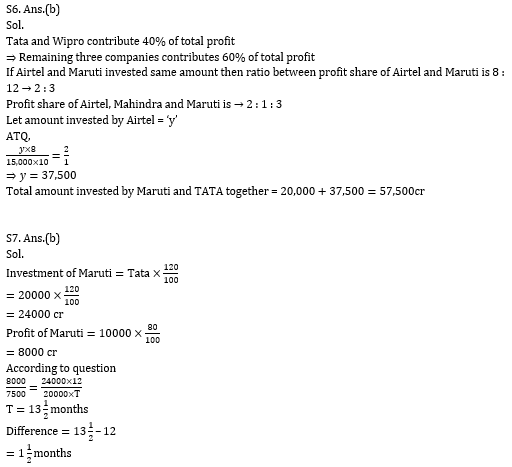
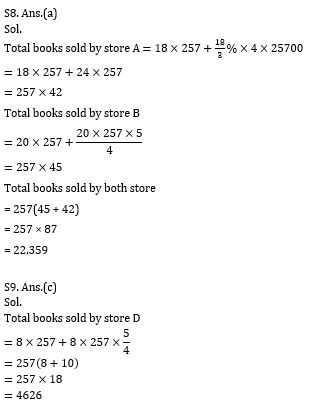
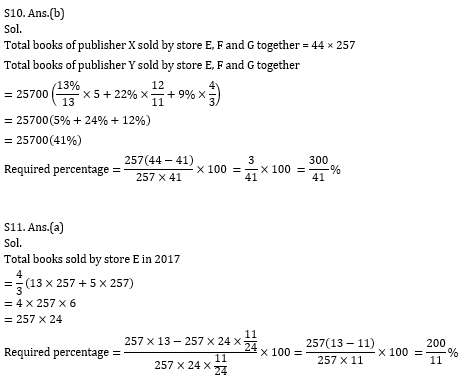
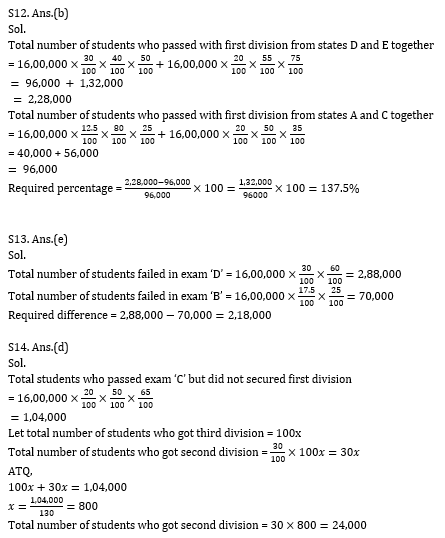
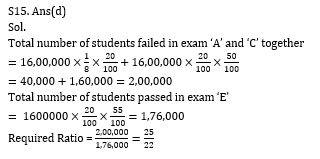
Practice with Crash Course and Online Test Series for IBPS PO/RBI Assistant 2020:
- RBI Assistant Mains 2020 Online Test Series
- IBPS PO Online test series (Prelims + Mains) 2020 by Adda247
- IBPS KA MAHAPACK Online Live Classes




 GA Capsule for SBI Clerk Mains 2025, Dow...
GA Capsule for SBI Clerk Mains 2025, Dow...
 The Hindu Review October 2022: Download ...
The Hindu Review October 2022: Download ...
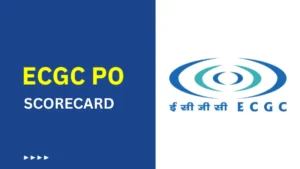 ECGC PO Scorecard 2025 Out, Check Marks
ECGC PO Scorecard 2025 Out, Check Marks




